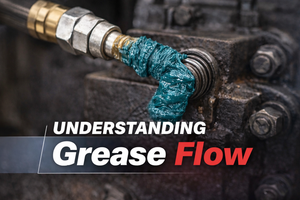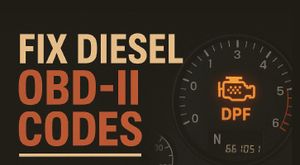Why You Need to Treat Your Diesel in the Spring and Summer
By on May 29 2019
No diesel owner is going to contest the notion of treating their diesel fuel in the winter, particularly when they live in the Northeast or Midwest where winter runs rampant (and cold). In regions that experience true winter, the cold temperatures can lead to icing issues and diesel fuel gelling. Anyone who has experienced frozen water in their fuel lines/filters or completely gelled diesel are not going to question using anti-gel products like Power Service Diesel Fuel Supplement + Cetane Boost and Diesel 911.
So, why do those preventative and treatment measures stop as soon as the weather gets warmer? Besides your regular and mandated use of Diesel Exhaust Fluid (DEF), you should be taking proactive measures to make sure your diesel is protected no matter the season.

Microbial Contamination & Diesel Bug
Modern ultra-low sulfur diesel (ULSD) and biodiesel face much more water-related issues than past diesel fuels, and the problem stems beyond ice in the winter.
Water in your fuel tank is a relatively common occurrence thanks to condensation, rainwater penetration, and even the moisture in the air itself. When water enters your fuel tank or storage tank, it assists the process of microbial growth.
Diesel fuel tanks can actually become prime real estate for aerobic and anaerobic bacteria when the conditions are right. When you have an abundance of bacteria in your fuel, it can result in microbial growth which is a bad thing. Water plus a food source plus ideal temperatures is home sweet home to microbial growth.
It may be surprising to learn, but diesel can be a great food source for microbes, especially when it’s biofuel (potentially made from corn or soy). And because the U.S. requires all transportation fuel to contain a minimum volume of renewable fuels (biofuels), meaning just about all diesel fuel is the perfect environment for micro bacteria to thrive.
The microbial contamination of diesel fuel is also called “diesel bug.”
Diesel Treatment
Treating your diesel fuel year-round is incredibly important. When you do so, you have much more control over your fuel, such as its lubricity, cetane rating, performance, and overall stability. To maintain fuel stability and performance, you need certain additives to protect these properties. Additives help to keep the fuel stable so that it meets the legal requirements.
We always say that preventative treatment is cheaper than a cure, and it’s true with diesel, as well. Using the right additives helps to prevent future damage and repair costs, as well as premature filter changeouts.
Diesel Kleen +Cetane Boost
When temperatures are above 30F, add Diesel Kleen +Cetane Boost when you fill up to clean injectors, boost power, lubricate pumps and injectors, and restore lost power and fuel economy.
Clear-Diesel Fuel & Tank Cleaner
We recommend using Clear-Diesel at least quarterly (or as needed) to remove existing water in your fuel tank. This product will also disperse contaminants and ensure fuel is stabilized for long-term storage.
Bio Kleen Diesel Fuel Biocide
If microbial contamination is already present in your fuel (check your filters), you’re going to want to treat it with Bio Kleen to kill the microbes (bacteria and fungi) first. Once the fuel is treated, add Clear-Diesel to remove the residual water and contaminants.
To properly care for your equipment, you need to take care of your engine and your fuel. Following a year-round maintenance schedule is key to maintaining your engine.






